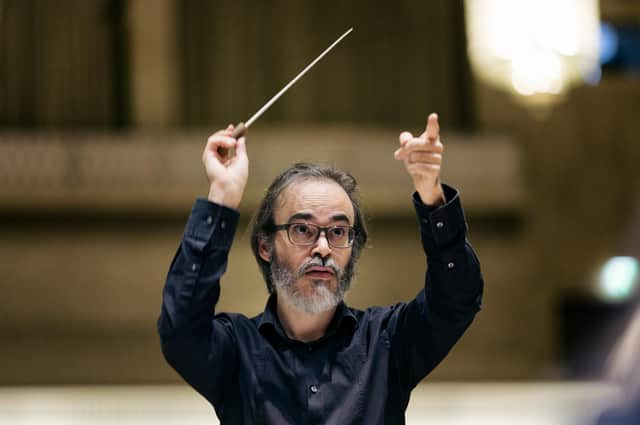Music review: BBC SSO, City Halls, Glasgow


BBC SSO, City Halls, Glasgow *****
To say that Ilan Volkov can make a silk purse out of a sow’s ear is to undervalue the music contained within Thursday’s BBC SSO afternoon programme. But while this curious collection of Frescobaldi, Rameau, Haydn and Bruno Maderna seemed, at face value, like random ingredients in an improvised recipe, Volkov’s charismatic exactitude ensured an edifying result.
It had a title, Volkov in Venice, though even that seemed to reference only one of the works, Venice-born Maderna’s Venetian Journal. Ultimately, the fascination of this mildly eccentric programme was its versatility of scale and musical style, from reimagined Italian Renaissance to exuberant French Baroque, cool Austrian Classicism to contemporary Italian.
Advertisement
Hide AdAdvertisement
Hide AdBest of all, the SSO’s principal guest conductor had the orchestra, and us, fully in his grip from the outset. First up was Tre pezzi, three 17th century works by Frescobaldi filtered through the 20th century pen of Maderna, and performed with illuminating, super-refined clarity.
Then to Maderna’s own Venetian Journal, a whimsical concert drama for tenor, orchestra and electronic tape, based on the diaries of James Boswell from his 1760s Venice trip. It’s a madcap affair, in which the absurd conceit of Boswell’s narrative – brilliantly and wittily characterised here by tenor Benjamin Hulett – is inflated to surreal extremes by a score the explodes in every direction.
It was a mesmerising presentation, embracing the wildness of the vocal performance, the belligerence of the ensemble writing (often echoing the dry cynicism of Stravinsky or Weill), and the ecstatic uplift of the electronic topping.
There was no shortage of drama either in Rameau’s fiery orchestral suite from his victory opera Naïs, which found the SSO in flamboyant and gritty Baroque mode; then in Haydn’s first Paris symphony, The Bear, delivered cleanly and precisely, but not without eager dynamism.
A message from the Editor
Thank you for reading this article. We're more reliant on your support than ever as the shift in consumer habits brought about by coronavirus impacts our advertisers.
If you haven't already, please consider supporting our trusted, fact-checked journalism by taking out a digital subscription at https://www.scotsman.com/subscriptions